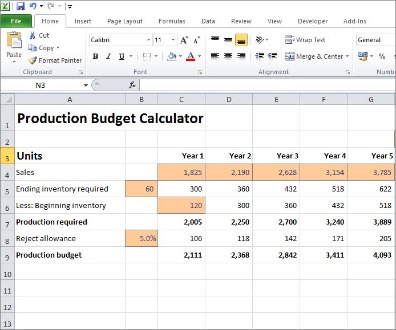Content
The factoring company then takes over collecting on those invoices, and may also assess fees to you based on how long it takes the invoices to be paid or fees per invoice. This can be a good injection of cash for businesses in manufacturing, health care, distributions, or IT companies where you have a high level of invoices. A 2019 study by Intuit revealed that nearly two-thirds of business owners have had cash flow troubles, and that nearly half of those have had trouble paying employees or themselves because of these issues. However, managing your cash flow and using financing when needed can allow you to avoid these problems. Getting a small business loan can provide your company with the funding it needs to get started, expand or cover day-to-day expenses. Compared to other financing options, there are some benefits to a business loan.
- With an employee forgivable loan, companies typically forgive the employee of their interest and principal repayment obligation over time.
- The parties agree that, rather than paying the bonus amounts to the employee, the employer will use those amounts to satisfy the employee’s repayment obligations under the loan.
- Most plans allow loan repayment to be made conveniently through payroll deductions—using after-tax dollars, though, not the pretax ones funding your plan.
- A draw against commission is essentially a payment advance to a commissioned sales employee.
- Second, there is an exception from some loans made to aid employees in purchasing principal residences in connection with moves to new work locations.
When going over your budget, you might find that you don’t have much extra cash to put toward student loan payments. Earning extra income by asking for more hours at work, getting a part-time job or a side hustle could help you bridge the gap. If you’ve exhausted all other funding options, you may start to think about payday loans, which are considered predatory loans because of their high interest rates. Before applying for one, make sure you have an income to start making payments.
Alternatives to employee loans
The process of lending your employees money can be a double-edged sword. It can be a great way to show your employees that you care about them and their financial needs, but there are risks involved that may negate both parties’ benefits. Each situation will differ, so it’s vital to have policies in place before money ever changes hands. Check applicable state laws and regulations before enacting this method. If an adverse life event wreaks havoc on your employee’s finances and their current income barely covers the cost (or not at all), what will they do? Workers often quit and seek higher-paying employment elsewhere or take on additional debt to make up the difference when something like this happens.
Credit cards come with small minimum monthly payments and no deadline for paying your balance off in full. Personal loans require a higher fixed monthly payment and must be paid off by the end of the loan term. A loan is below-market if it bears interest at a rate less than the AFR. An employer, however, cannot circumvent these rules by hiring an unrelated third party to lend to its employees. The third-party lender will likely be treated as an agent of the employer, so the loans will still be compensation-related loans.
What is a 401(k) loan?
For instance, an employee who earns taxable wages of $1,200 biweekly takes a salary advance of $200. When deducting the repayment from the employee’s next paycheck, withhold federal income tax, Social Security tax, Medicare tax, and any state and local income taxes from the $1,200. Personal loan terms could be easier for you to repay without having to jeopardize your retirement funds. A 401(k) loan is often a better financial choice than other short-term funding options such as a payday loan or even a personal loan. These other loan options typically come with high interest rates that make them less attractive.

It’s a smart idea to know your credit scores before applying so you know what types of loans you’ll qualify for. Payroll costs are likely one of your bigger expenses if you have many full-time employees. There are sometimes financial situations (a global pandemic, for example) when you have unexpected expenses or less revenue than anticipated, and that’s when you might struggle to cover payroll. A small business loan can help your company reach its goals and pave the way for profitable growth.
Are hardship loans a good idea?
The fees, which cover loan processing, can either be rolled into the loan or subtracted from the amount disbursed to the borrower. Personal loans can be a good option for some, but they are not the right choice Are Employee Loans A Good Idea? in all situations. Here are a few negatives to consider before taking out a personal loan. While we adhere to strict
editorial integrity,
this post may contain references to products from our partners.
- Your employee would be compensated for the $13 million of growth that the company experienced after he or she joined, but would receive no value for what the business had attained before employment.
- Since your company will earn revenue by selling the inventory, it can make financial sense to use a loan to cover the upfront cost of the purchase.
- LendingPoint offers pre-qualification so you can check the terms of your potential loan without impacting your credit score.
- The employee receiving the advance must pay back the money within a specified time frame, as dictated by the company’s salary advance policy.
- The TAM concluded that economic performance does not occur and the employer cannot recognize a compensation deduction until the employee performs the services.
We are compensated in exchange for placement of sponsored products and, services, or by you clicking on certain links posted on our site. Therefore, this compensation may impact how, where and in what order products appear within listing categories, except where prohibited by law for our mortgage, home equity and other home lending products. Other factors, such as our own proprietary website rules and whether a product is offered in your area or at your self-selected credit score range can also impact how and where products appear on this site. While we strive to provide a wide range offers, Bankrate does not include information about every financial or credit product or service. As a small business owner, you should sympathize with your employees when they face financial difficulties by extending loans to them.
Consult your company’s legal team if you want to include a clause that ensures the debt follows the borrower even if they leave. Loan payments can be deducted from the employee’s salary or paycheck and alternate payment methods can be set up before their employment status changes. The goal is to receive timely payment or avoid the employee absconding without fulfilling their agreement.
In many cases, you’ll need to provide proof of your financial hardship, like a letter from your doctor if the hardship is illness related. Reviews are not provided or commissioned by the credit card, financing and service companies that appear in this site. Reviews have not been https://kelleysbookkeeping.com/ reviewed, approved or otherwise endorsed by the credit card, financing and service companies and it is not their responsibility to ensure all posts and/or questions are answered. You’ll want to keep a few things in mind if you are considering using a loan to manage cash flow.
Financial Literacy Month: 30 Steps to Financial Wellness
It’s often seen as a negative route to take since it means depleting the money you are saving and investing for your future. But, when taken in the right way—usually up to $50,000 can be borrowed and it must be repaid—your retirement savings should not be negatively impacted. Learn when you might want to borrow money from your 401(k), plus the rules and regulations to keep in mind. A 401(k) is an employer-sponsored savings plan that lets you set aside pre-tax dollars (or after-tax dollars if you have a Roth 401(k)) from your paycheck to help fund your retirement years.

If you cannot repay the loan based on the agreed-upon terms with your lender, you’ll face significant financial and credit consequences. But unlike a secured personal loan, you don’t have to worry about losing a home or a car as a direct result. Personal loan funds can be used for a number of purposes, including debt consolidation and medical expenses. It can be a good solution if you need funds fast — some lenders can deposit funds into your account as fast as the next business day. Plus, average rates are typically lower than some other forms of debt, like credit cards.
Our top picks of timely offers from our partners
You need to know about the types of TSP loans, eligibility requirements, and borrowing limits to determine whether taking a TSP loan is right for you. Employers may mean well when they allow employees to take 401(k) loans, and the vast majority of workers with 401(k)s have this option. As an alternative, employers are joining with firms such as Kashable to help fund and service loans.
Companies that offer student loan repayment plans make payments to the loan servicer or directly to the employee. Depending on the employer, you may need to work at the company for a certain number of years or have successfully completed a degree to qualify. Having enough money to pay your employees on time isn’t just good for your cash flow statement — it helps you retain employees, too. Using small business payroll loans, business credit cards, or business lines of credit can help you open up cash flow to ensure your employees’ paychecks are in the bank when you send them out.

Recent Comments